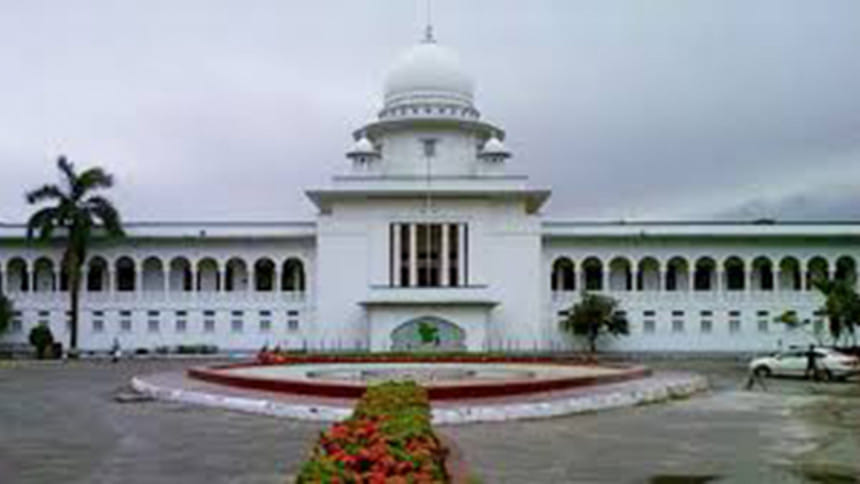Verdict on parliament’s power to impeach SC judges May 5

The High Court today fixed May 5 for delivering judgment on a writ petition that challenged the legality of the 16th constitutional amendment empowering parliament to impeach Supreme Court judges for incapacity or misconduct.
A special HC bench of Justice Moyeenul Islam Chowdhury, Justice Quazi Reza-Ul Hoque and Justice Md Ashraful Kamal set the date after concluding final hearing on the petition.
The parliament led by ruling Awami League on September 17, 2014 unanimously passed the 16th amendment and regained the power available in the 1972 constitution to impeach judges. A gazette notification was issued on September 22 the same year over the amendment.
Previously, the SC judges were removed by the president following recommendation from the Supreme Judicial Council, a body formed by the chief justice and two senior most Appellate Division judges.
On November 5, 2014, nine SC lawyers including Asaduzzaman Siddique, Aklas Uddin Bhuiyan and Sarwar Ahad Chowdhury filed the writ petition with the HC, challenging legality of the law, saying the provision might curb independence of the judiciary.
The petitioners thought bringing the amendment might have been motivated from a "malafide" intension and the judges might feel at risk before passing an order against a lawmaker, he added.
On November 9 the same year, the HC issued a rule upon the government seeking an explanation as to why the amendment should not be declared unconstitutional and annulled.
The three-member HC bench started hearing on the rule on May 21, 2015 and heard expert opinions from five amici curiae (friends of court) including eminent jurist Dr Kamal Hossain on the issue. Four other amici curiae are Mahmudul Islam, now dead, M Amir-Ul Islam, Rokanuddin Mahmud and Ajmalul Hossain.
Dr Kamal, a framer of the constitution, told the HC in August last year that the 16th constitutional amendment that re-empowered parliament to impeach SC judges has affected the independence of the judiciary.
Security of judges' tenure is an element for the independence of the judiciary which is a part of the basic structure of the constitution, he said, adding that the judges' tenure should be secured for effective delivery of social justice.
Today, Attorney General Mahbubey Alam placed arguments before the HC vehemently opposing the writ petition.
He said the 15th and 16th amendments were brought to the constitution to scrap the constitutional changes that were made by martial law proclamations and to restore the original constitution of 1972.
The attorney general also said a law will be formulated determining the procedure of removal of SC judges and before formulation of the law such writ petition is not acceptable.
Petitioners' lawyer Manzill Murshid told the HC that the basic structure of the constitution has been changed through the 16th amendment.

 For all latest news, follow The Daily Star's Google News channel.
For all latest news, follow The Daily Star's Google News channel. 








Comments